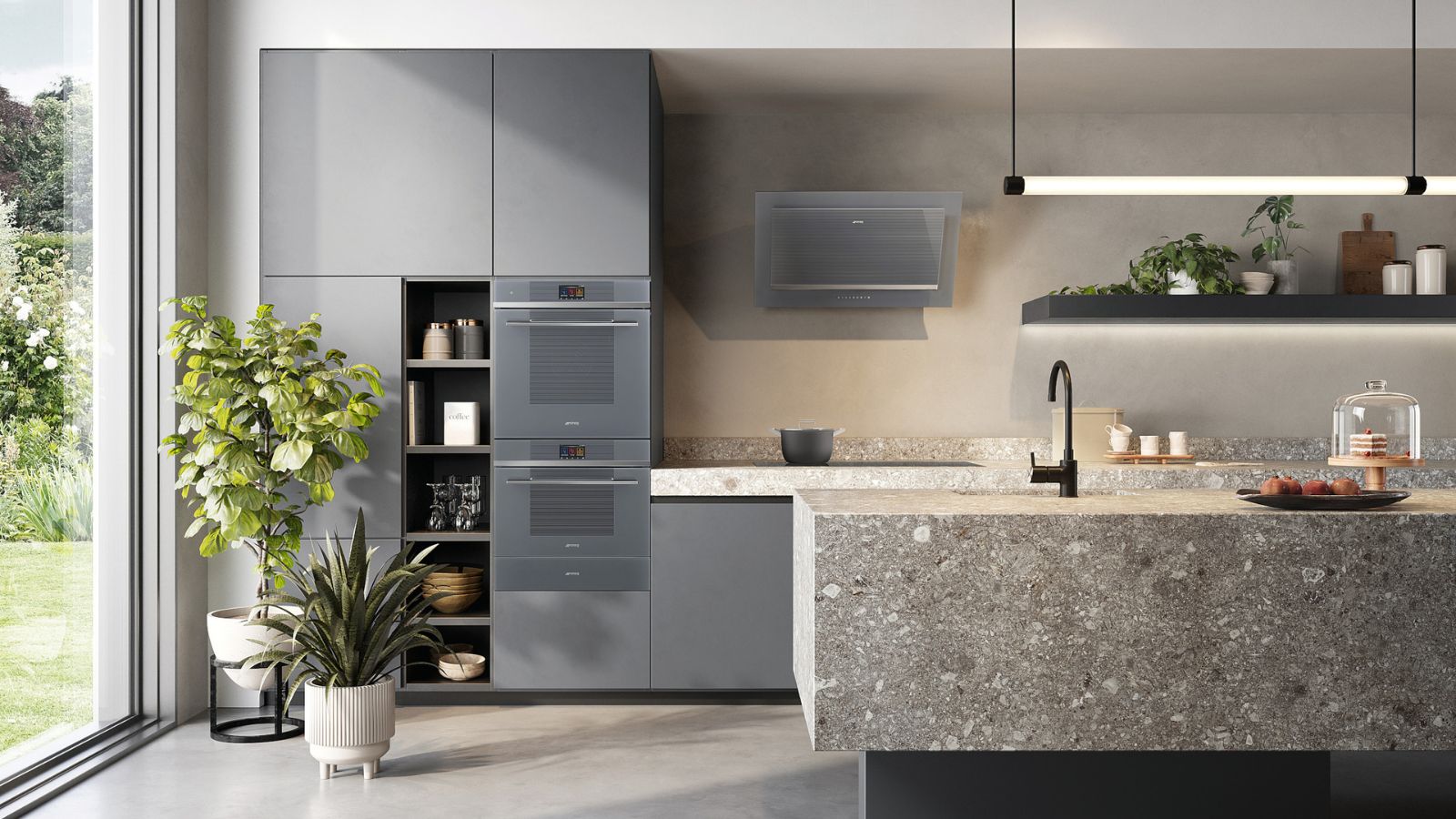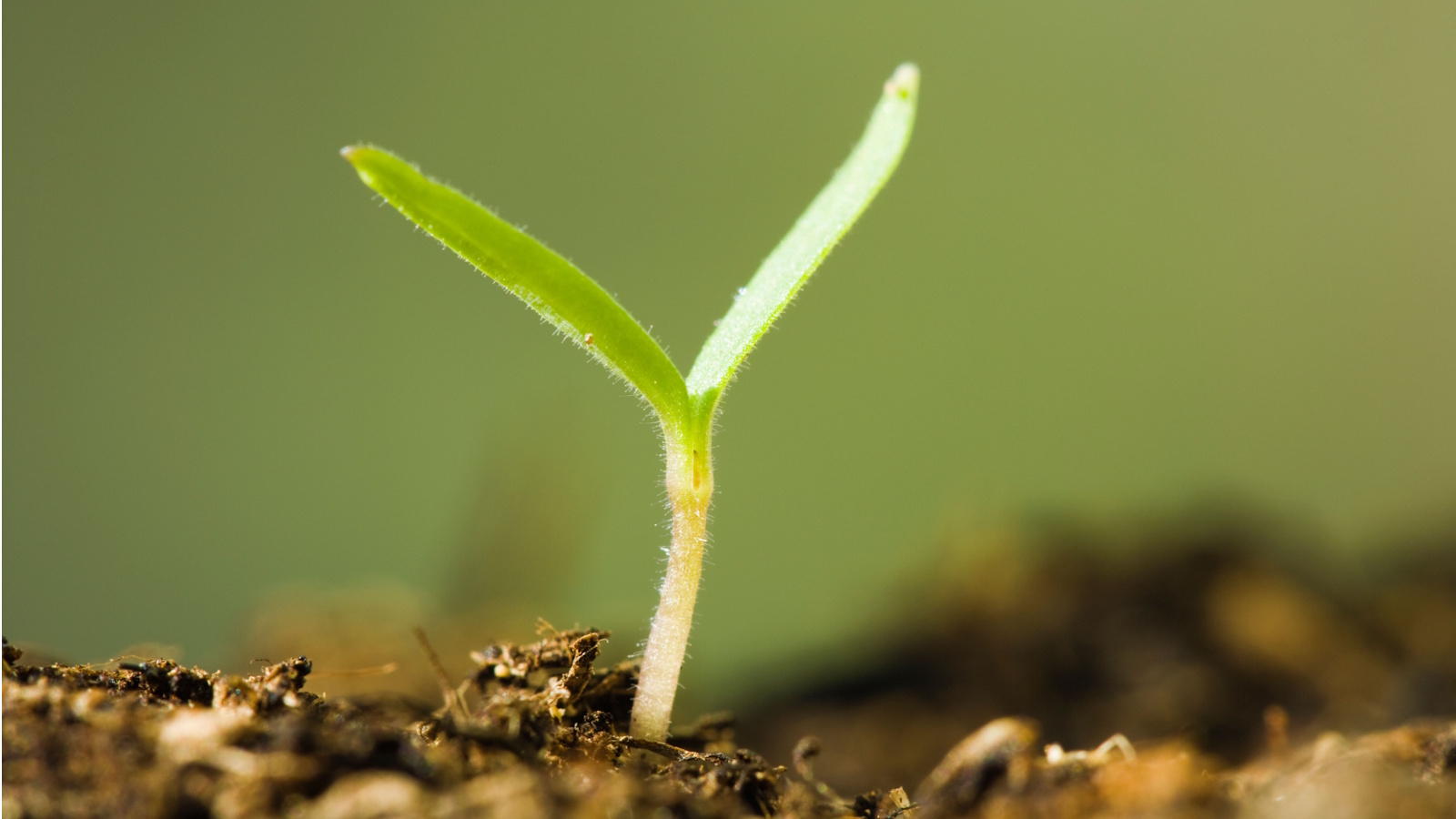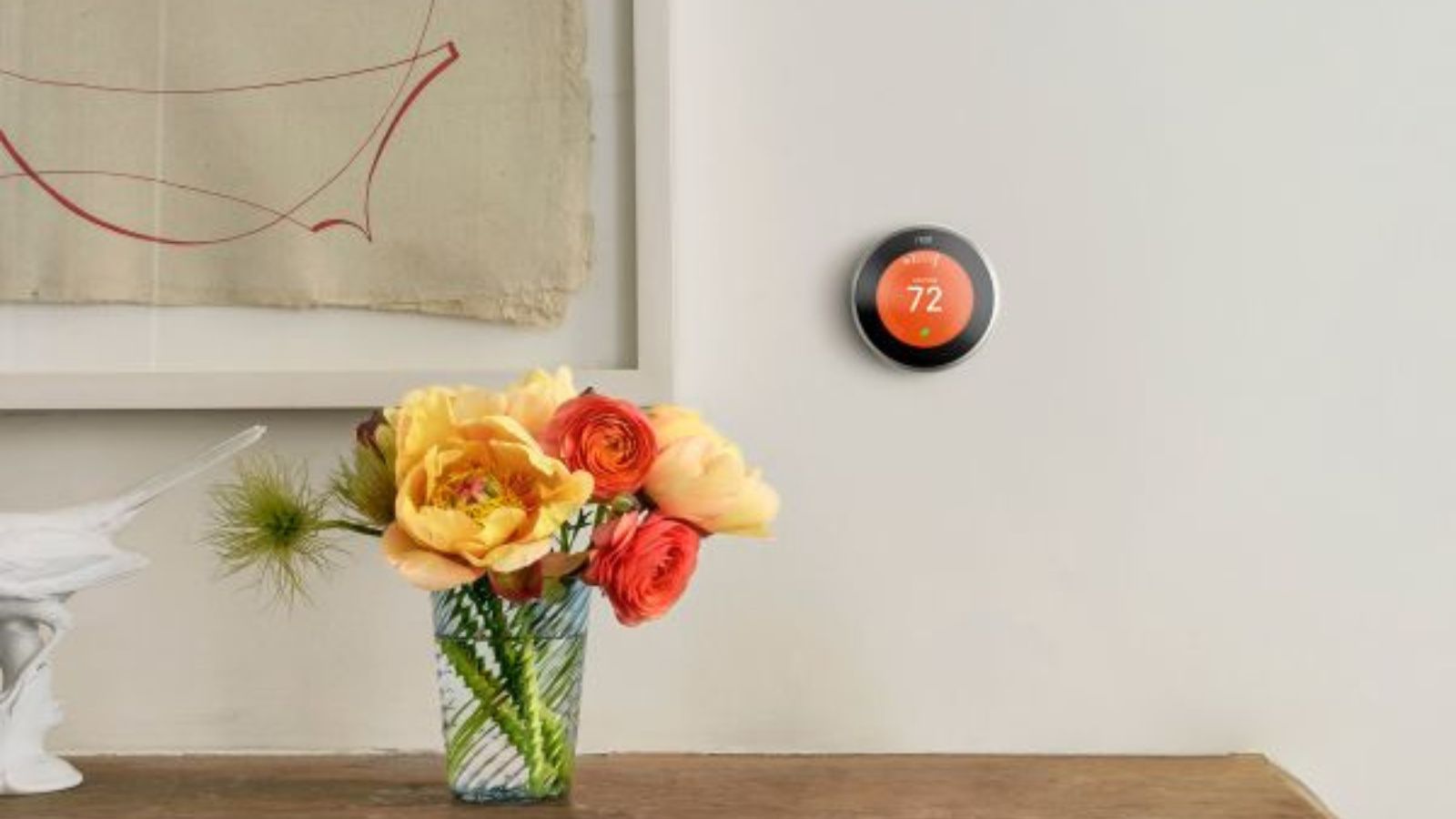How to choose energy-efficient appliances – a 9-step guide
Buying energy-efficient appliances won't just protect the environment but will help you save on energy bills, too


If you are shopping for new, whether for a remodel or because an old piece of kitchen equipment has finally given up the ghost, it makes sense to buy energy-efficient appliances that are as eco-friendly as possible.
Doing so won't just help reduce the emissions that lead to global warming; energy-efficient appliances will help you cut energy bills, too.
But where to start when shopping sustainably for energy-efficient appliances? This quick guide will tell you what you need to know.
How to choose energy efficient appliances
The U.S. Department of Energy (DOE) has a shopping for appliances page that encourages us to buy energy-efficient appliances to cut emissions and make long-term savings on our bills.
'When you're shopping for appliances, think of two price tags,' the Department says. 'The first one covers the purchase price – think of it as a down payment. The second price tag is the cost of operating the appliance during its lifetime.
'You'll be paying on that second price tag every month with your utility bill for the next 10 to 20 years, depending on the appliance. Refrigerators last an average of 12 years; clothes washers last about 11 years; and room air conditioners last about nine years.
'When shopping, consider labels and features that can help ensure that you purchase appliances with a low operating cost.'
Here's what you need to know.
1. Look at labels
Appliances have Energy Star labels to help consumers identify the most energy-efficient products. This label also appears on windows, water heaters and other electronics. EnergyGuide labels (which are yellow and black so easily identifiable) will show an appliance's average annual energy consumption and operating cost so that you can compare them.
In the UK, by contrast, since 2021, dishwashers, fridges and freezers are labelled from A (high efficiency) to G (low efficiency), while ovens and microwaves are rated as A+++ dropping down to D.
‘The appliance rating is based on how much energy it uses in typical use, compared with similar appliances,’ explains Joanna O’Loan, knowledge manager at the UK's Energy Saving Trust.
2. Choose the right-sized appliances
Getting the right-sized appliances is important. For example, a too-large washing machine or dishwasher you regularly run half-empty is far less efficient than a smaller appliance that you can always run full. Similarly, a full refrigerator is more efficient than one that's always empty.
'As appliances are categorized by size, a large and small fridge might have the same energy rating, but the larger model may use more electricity. Look for the product with the best energy rating for the size you need,’ Joanna O'Loan explains.
This works the other way around, too: fitting air con units that are too small for your home is inefficient since they will have to be on for longer and work harder to cool your home.
3. Find eco-friendly ways to use appliances
Eco settings, on dishwashers for example, can help you use any appliance in a more eco-friendly way. Similarly, doing laundry at a lower temperature will save energy. Swapping out a tumble dryer for a dehumidifier will save energy and cut costs, while shopping for a refrigerator with the freezer above or below rather than side-by-side will generally be a more efficient choice.
4. Consider smart appliances
According to the DoE, smart appliances can be much more energy-efficient than those not connected to or controlled by smart electric meters or home energy management systems because they help you use electricity at off-peak hours.
'Smart appliances don't just turn off during times of peak electricity demand – instead, they use subtle ways to shift energy use,' says the DoE. 'Your air conditioner may run slightly less often, or your water heater may adjust its heating cycle to operate when energy costs are lower, without impacting their performance. Or your laundry or dishwasher can be scheduled to operate when electricity rates and demand are lower.'
5. Choose an energy-efficient dishwasher
Likely to be among the most energy hungry of your kitchen appliances, it is worth running a dishwasher with a full load each time, using an eco programme.
As we said above, choosing appliances with an eco setting is a good way to be energy efficient. These tend to use much less water and offer cold washes that don't draw energy to heat water.
Sian Bailey, dishwasher category manager for Miele says, ‘Over the last 20 years, Miele has reduced the energy consumption of its dishwashers by 44% and Miele dishwashers have only used six litres of water for many years compared to an average of 10-12 litres for other dishwashers.’
6. Pick a refrigerator with eco features
If you're buying a refrigerator, you might like to know that this is probably the single most energy-intensive appliances you'll have in your kitchen. While fridges and freezers need to stay switched on all the time, there are ways to reduce energy consumption. Avoid overloading, minimize the number of times you open and close the door, and select ‘holiday mode’ to conserve energy while you’re away.
Lee Harrington, connected home group manager at BSH Home Appliances Group, recommends investing in an app-controlled smart fridge freezer.
‘If you accidentally leave the door open, you’ll receive a reminder to shut it via the app,’ he explains. ‘And, if you select SuperCooling and SuperFreezing modes via the app as you leave the supermarket with your shopping, by the time you get home, the temperature of the fridge and freezer will be lower than usual, to offset the rise in temperature when you open the door to load groceries.’
7. Make cooking energy-efficient
Ovens are now well insulated to avoid excess heat loss and are typically favorably energy rated. However, there are extra features to look out for.
‘While people in a hurry might opt for rapid heat up options, those with more time can choose the more efficient eco mode which steadily heats food, avoiding the initial surge,’ advises Lucy Dunstan, product manager at Smeg.
Cooking several dishes at once and avoiding opening the door too much also helps make your appliance more efficient.
‘Induction hobs are considered more energy efficient than other hobs,’ adds Lucy. The induction process heats only the base of the pan, rather than the hob, so heat loss is minimized and energy efficiency maximized.
Using a microwave to cook when you can is also more energy efficient than using an oven since only the food and not the oven is heated.
8. Kettle or boiling water tap?
Shopping for the best electric kettle or considering a boiling water tap? Avoiding overfilling your kettle can save energy but an alternative is to invest in a boiling water tap, which can save energy, as Stephen Johnson, managing director of Quooker explains.
‘Considering the average kettle uses 2,200W to boil 1.7 litres of water and is used several times a day, only 10W per day (rather than per use) is needed to keep the water in the Quooker high-vacuum insulation tank at boiling point, ready to deliver boiling water instantly.’
9. Make laundry day more energy-efficient
Washers that are energy-efficient can cut your energy and water bills, and though typically more expensive, the best can save $160 over their lifetime.
'Try to wash only when you have enough laundry for a full load, and at low temperatures, to maximize your savings,' say the experts at Energy Savings Trust.
Tumble dryers can be bigger energy-guzzling culprits, so it's absolutely worth shopping for an energy-efficient appliance here – you could save up to $782 on energy bills over its lifetime. Other than the energy label, look for those that have sensors that tell you when your clothes are dry so you don't run the appliance unnecessarily, and consider swapping to electric heat pump or gas tumble dryers, both of which are more efficient.
Or, as we said above, swap to one of the best dehumidifiers you can find, which typically use far less energy. And drying clothes outdoors when you can is also a no-brainer.
What consumes the most energy?
Any appliances that heat or cool will use the most energy, which puts refrigerators, air con units, home heating and ovens firmly in the frame. Next, look to laundry appliances as high energy consumers.
How can I make my appliances more energy efficient?
Whether your appliances are energy-efficient or not, leaving them on standby will guzzle more energy and add to your bills (an average household spends around $70 on appliances on standby.
'Fortunately there are a number of products available to help cut down your standby electricity consumption, such as standby savers that allow you to turn all your appliances off standby in one go. Some come with timers and others come with a single off-switch,' says the experts at Energy Saving Trust.
Sign up to the Homes & Gardens newsletter
Design expertise in your inbox – from inspiring decorating ideas and beautiful celebrity homes to practical gardening advice and shopping round-ups.

Amelia Thorpe is a specialist interiors and design journalist, covering every topic to do with homes from fabrics, furniture and lighting to surfaces, kitchens and bathrooms.
As the daughter of an antique dealer and a lifelong collector of old cookery books and vintage graphics herself, she also has a particular expertise in antiques, mid-century and decorative arts of all kinds.
Drawn to homes because of their importance in the happiness of our lives and the enjoyment they can bring, Amelia has been writing about the topic for more than fifteen years. She has interviewed some of the most influential designers of our time, from Piero Lissoni, Antonio Citterio, Jaime Hayon and Arik Levy to Nina Campbell and Robert Kime.
-
 Experts say to only use homemade compost after testing it with this fail-safe method – they say it will guarantee healthy soil and support plant growth
Experts say to only use homemade compost after testing it with this fail-safe method – they say it will guarantee healthy soil and support plant growthSimply grab some fast-growing seeds and observe how they germinate in your compost
By Tenielle Jordison Published
-
 How safe are carpet deodorizers? As a seasoned vacuum tester, I urge you to try alternative methods
How safe are carpet deodorizers? As a seasoned vacuum tester, I urge you to try alternative methodsNatural cleaning is always the answer
By Dan Fauzi Published
-
 What is a smart thermostat? And how one could save you money
What is a smart thermostat? And how one could save you moneyCould you lower energy use and bills in one with a smart thermostat? This is what they are, what they do, and how they can save you money
By Lucy Searle Published
-
 Homemade kitchen cleaner – an easy eco step-by-step
Homemade kitchen cleaner – an easy eco step-by-stepCreating your own homemade kitchen cleaner needn't be a chore – here, author Jen Chillingsworth shows us how; it can be used in bathrooms, too
By Lucy Searle Published
-
 Sustainable kitchen ideas – 19 ways to design an eco-friendly cook space
Sustainable kitchen ideas – 19 ways to design an eco-friendly cook spaceThese sustainable kitchen ideas will ensure your new kitchen design doesn't cost the earth
By Holly Reaney Published